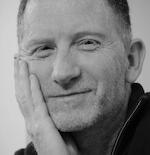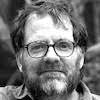
Media Prize Sponsored by Taylor and Francis.
Awarded for the best philosophical piece(s) published by a professional philosopher in the popular media in Australasia during the previous calendar year.
SUBMISSIONS NOW OPEN
More information, judging criteria & how to enter
2025 Winner


University of Sydney
Rawls the Redeemer - Aeon Magazine
Alexandre Lefebvre’s Rawls the Redeemer shows philosophy at its public best. In vivid, accessible prose, it reintroduces John Rawls—not as an abstract theorist of justice, but as a thinker who speaks to our everyday search for meaning, fairness, and belonging. The essay translates complex ideas into a language of shared humanity, inviting readers far beyond academia to see how liberal values can help us live well together.
2025 Shortlist



University of Sydney
What do we lose when we weaken our universities? The case against a cap on international students
Religion and Ethics - ABC Radio
Will Australia’s proposed cap on international students do more harm than good?
The Minefield - ABC Radio National


University of Sydney
Rawls the Redeemer - Aeon Magazine



Aidan Ryall & Esther Sunkyung Klein
Australian National University
The Philosophy of History in China
The Philosopher’s Zone - ABC Radio National
2024 Winners



Christopher Lean & Kate E. Lynch
Macquarie University and University of Melbourne
De-Extinction Part 1 & De-Extinction Part 2. The Philosopher’s Zone. ABC Radio
'The winning entry focuses on the timely topic of de-extinction. This important topic is explored across a two-part podcast in which Lean and Lynch draw on their unique expertise in both philosophy and biology to explore the ethical and scientific dimensions of bringing new species back from extinction. This is particularly important in the Australian context, where the Thylacine has been targeted for de-extinction. The piece thus highlights the importance of this difficult topic to the complex ethical landscape of environmental conservation in Australia. The piece exemplifies many of the qualities of excellent public philosophy. It helps to generate public interest in philosophical contributions to science; it is clear and accessible, and it puts philosophy squarely into the public eye.'
2024 Shortlist



Macquarie University
In the Cave: An Ethics podcast



Christopher Lean & Kate E. Lynch
Macquarie University and University of Melbourne
De-Extinction Part 1 & De-Extinction Part 2 The Philosopher’s Zone - ABC Radio


University of Notre Dame Australia & University of Sydney
Aristotle in the age of consent
A time when men were men? Ancient masculinity, Achilles, and the deceptive claims of the Alt-Right
2023 Winners

Mark Alfano Co-Winner
Macquarie University

Mandi Astola Co-Winner
University of Wollongong
"A sense of humour – even a dark one – is a moral virtue" Psyche/Aeon Magazine
Alfano and Astola's piece is an example of public philosophy at its best. It details the moral value of having a sense of humour, focusing on the way that a sense of humour might constitute a virtue. The piece is engaging, philosophically sophisticated and, at times, funny. It shines a light on everyday life in a way that helps to communicate important philosophical ideas to a general audience, providing a model for how to engage the public in important philosophical ideas.
2023 Commendation

Karen Jones
University of Melbourne
Rejoinder to "Uncivil Wars"
Quarterly Essay and at Festival of Dangerous Ideas broadcast as part of The Minefield, ABC Radio
2023 Commendation

Tom Cochrane
Flinders University
"Attuned to the Aesthetic" Aeon Magazine
2022 Winner

'When life gives you lemons... 4 Stoic tips for getting through lockdown from Epictetus'
The Conversation, 23 August 2021
Associate Professor Sharpe has been one of the leading contributors to public philosophy in Australia over many years, particularly through his prolific contributions to The Conversation (including as an original author of the ‘Cogito’ blog) and to a range of other print and electronic outlets. Internationally, he has become a leading figure in the public understanding of Stoicism and philosophy as a way of life. His winning entry in 2022, “When life gives you lemons... 4 Stoic tips for getting through lockdown from Epictetus”, brings insights from classical philosophy to bear on pressing issues faced by readers during the Covid-19 pandemic. The piece is emblematic of Sharpe’s work in public philosophy: clear, succinct, timely. The judges noted how well he showcases historical material for a popular audience, going beyond the usual superficial exposure to demonstrate philosophy’s profound and ongoing relevance.
2021 Winner

Eleanor Gordon-Smith
Little Bad Thing podcast
As a long-standing ambassador for public philosophy, Gordon-Smith has produced a broad range of impressive, impactful, high-profile and compelling work that clearly resonates with the public. In addition to her philosophical advice column ‘Leading Questions’ in the Guardian, Gordon-Smith produced the ‘Little Bad Thing’ podcast in collaboration with The Ethics Centre. While exploring such philosophical topics as blame, responsibility, and akrasia, Little Bad Thing is built around interviews with real people about real-life moral decisions and experiences.
The judging panel was particularly impressed by Gordon-Smith’s ability to draw out the philosophical nuances of everyday experiences, and to use philosophy in a way that illuminates deeply felt questions about who we are, who we want to be, and how we want to live. Her choice to orient her work around people's actual experiences makes her work readily accessible, and she approaches issues with rigour, curiosity and good humour. She reminds us that philosophy isn't just about questions that are 'big' on a cosmological scale, but also - especially - the ones that intimately, concretely affect us and our sense of ourselves. Gordon-Smith’s work is a fine example of how philosophy can not only help to explain and understand life's many complexities, but validate the anxiety, inertia and confusion life can give rise to.
2020 Winners


David Killoren (ACU) & Richard Rowland (ACU)
'Uncivil Disobedience'. Hi-Phi Nation, Slate Podcasts May 25 2019
Killoren and Rowland produced and presented “Uncivil Disobedience,” an episode of the podcast series Hi-Phi Nation exploring the controversy over animal liberation activism in the context of Australian farming. Hi-Phi Nation, created and produced by Dr Barry Lam (Vasser College), has been at the forefront of philosophy podcasting, telling stories in a philosophically-informed way, and “Uncivil Disobedience” is an outstanding example of this approach. The episode tackled a timely, difficult and pressing issue of increasing relevance to the public, and did so in a philosophically rich and informative way. Rowland and Killoren brought together the voices of activists and farmers alongside a range of philosophical voices to illuminate the ethical and strategic complexities of civil disobedience and activism. The program was a fine example of accessible philosophy with immediate public relevance, which found a wide audience.
2019 Winner

Kristie Miller
‘The block universe theory, where time travel is possible but time passing is an illusion’, ABC Science, Catalyst
In a piece written for ABC Science, Assoc. Prof. Miller set out to explain some metaphysical considerations about the nature of time. This was a particularly challenging task given the scope and difficulty of the material. Yet the result was an outstanding example of philosophy communication. Explaining the ‘block universe’ model of time, Miller reconceptualises familiar terms such as ‘now,’ ‘past,’ and ‘future,’ showing how time travel could be logically possible and how certain apparent paradoxes of time travel can be dissolved. Miller is particularly alive to how counterintuitive some of the claims made in philosophy of time are to those hearing them for the first time and explains them with lucidity and with neither jargon nor condescension. Miller’s essay was a masterclass in how to communicate complex and abstract metaphysical ideas in a way that is accessible, compelling, and left the audience genuinely engaged and enlightened.

In 2017 Daniel Halliday was the presenter of Ethics Matters, an engaging and informative 12-part series aimed at teenagers and broadcast nationally on ABC TV 3. In interviews with a diverse range of philosophers, Halliday leads the viewer through thoughtful and open-ended discussions of some of the most pressing ethical issues of our time, from the status of animals, immigration, body image and disability, to egalitarianism vs libertarianism, religious diversity, and freedom of speech. The panel commended the way Halliday draws on his expertise to get the best out of his guests and to summarise complex philosophical ideas in an accessible way. In addition to building public engagement with key philosophical discussions, Ethics Matters will be a valuable resource for teaching ethics for years to come.
iview.abc.net.au/show/ethics-matter
2017 Winner

University of Newcastle
The winner of the 2017 AAP media prize is Russell Blackford. Russell has created an impressive body of work that deftly weaves together his academic research and popular writing across a wide range of topics and outlets. On subjects as diverse as philosophy of religion and science, ethics, and political philosophy, Blackford’s clarity and earnestness demonstrates the indispensability of philosophy for public debates. The panel particularly commends the way in which Blackford’s writing not only communicates philosophical ideas, but also models philosophical practice, taking the reader along through a process of lucid and balanced argument to reach his conclusion. His work has, deservedly, found a wide and eager audience.2016 Winner

Matthew is a prolific contributor to public philosophy: in 2015 alone his work appeared online in The Huffington Post, The Guardian, The Drum, The Conversation, ABC Religion and Ethics, and Eureka Street; in print in the Sydney Morning Herald, Canberra Times, and Daily Telegraph; and he was a guest on The Minefield on ABC Radio National and several Local Radio programs, as well as appearing on the television show The World on ABC News 24. Matthew’s contributions to public philosophy stood out as particularly well-attuned to the public audience. He seamlessly wove philosophical methods and content into discussions of a wide range of issues in the public interest – including current affairs, new release movies, sport and online dating. Matthew’s public philosophy draws heavily on his specialist background. For example in the highly engaging article “‘It’s a Hell of a Thing’: American Sniper and the True Cost of Killing” he draws on his background in just war theory and the ethics of war. Despite the philosophical underpinnings of the piece, the style is never laboured or condescending, but remains engaging throughout.
2015 Winner

Henry Martyn Lloyd
Awarded for two pieces on free speech - an online article on The Drum (“Brandis misses the finer points of free speech”) and an interview with Ian Newton from Radio Adelaide. The print article is an excellent example of how to draw on a specialist background in philosophy to effectively intervene in public debate. Focusing on Attorney General George Brandis' appeal to John Stuart Mill in debates about Australia’s racial discrimination laws and climate change, Lloyd goes back to the original source to explain the details of Mill’s own argument, and in doing so helps to distinguish the philosophy from the political spin. The piece exemplifies clear, sustained philosophical argument. The pieces are engaging, both in style and because the issues are important. The judging panel also notes that the radio article was widely shared and 'liked' on social media, and there were 746 comments (125 printed pages) on the written article within the 24 hours during which it was open to comments. These comments stand as strong evidence of how when good philosophy is made accessible to a wide audience it can inspire genuine reflection and informed debate.
2014 Winner

Patrick Stokes
Deakin University
Burying Thatcher: why celebrating death is still wrong - The Conversation, April 2013
Do you really exist online? -New Philosopher, 2013, Issue 2
Just who do you think you are? - The splendid mess of personal identity - New Philosopher, 2013, Issue 1
Stokes’ articles are models of accessible philosophical writing, striking a fine balance between public accessibility and philosophical analysis. The writing is excellent, and Stokes never presumes that readers will find philosophy inherently interesting; rather he shows how philosophical reflection can help illuminate issues that are the subject of public debate.
In “Burying Thatcher: why celebrating death is still wrong”, Stokes succinctly identifies a number of moral issues at play in the emotionally and politically charged public discourse surrounding Thatcher’s death. Distinguishing between the commonplace that we shouldn’t speak ill of the dead, and the related idea that we shouldn’t celebrate the death of another human being, he subjects both these commonplaces to an illuminating analysis. Drawing together ideas from different philosophical traditions, he develops a nuanced argument that while it is sometimes legitimate to speak ill of the dead – for example to make critical judgments about Thatcher’s life as a whole – it is never acceptable to celebrate the death of another human being. The article shows how good philosophy can lift the tone and improve the quality of public debate by bringing reasoned argument into the discussion of a polarising topic.
Stokes is a regular contributor to The Conversation and New Philosopher, and makes numerous appearances on radio programs including ABC Radio National’s Life Matters and The Philosopher’s Zone; Local ABC Radio; BBC Radio 3; and community radio station 3RRR in Melbourne. It is thus fitting to acknowledge his commitment to public philosophy, as well as the high quality of his contributions.
2013 Winner

University of Melbourne
Awarded to Damon Young for his work in a range of media outlets on a broad variety of topics such as faith and freedom, the work of David Hume and the idea of a meaningful life. His work, which is highly accessible and yet still intellectually sophisticated, has been published in mainstream print media such as the Sydney Morning Herald and the Financial Review (which have a very wide readership) and he has appeared regularly on ABC Radio. He has also argued passionately in these works for the continuing relevance of philosophy to both large-scale problems of public life and an individual person’s search for understanding. The topics he explores are themselves of great interest to the general public and Damon is able to demonstrate the significance of the philosophical tradition to such discussions, and in so doing promotes philosophy in the community.
2012 Winner


Centre for Human Bioethics, Monash University. The Prize is awarded for his timely discussion of climate change scepticism in a widely read article in the Sydney Morning Herald (20/12/11) and for an interview on Life Matters on Radio National (7/9/11) that explored the ethical treatment of depression. The print article is elegantly written and in the radio interview Biegler persuasively argues his case. On both occasions, Biegler uses recent philosophical literature to shed light on topics of great public interest and in so doing he demonstrates the relevance of a philosophical education and of philosophical research to matters of contemporary significance.
2011 Winner

School of History and Philosophy at the University of New South Wales for the pivotal role that he played in the production of the Compass program, The Trials of Galileo, which appeared on the ABC in May 2010. In this program the trial of Galileo at the hands of the Roman Catholic Inquisition is re-examined. Nearly 400 years after the original trial, the program brought together leadings scientists, scholars, barristers, politicians and churchmen to assess whether Galileo was correctly treated. This was an important television event that explored important philosophical themes about the relationship between religion and science. The program demonstrated a keen sense of how issues in the philosophy of science might be brought to life for a general audience.
2010 Winner


University of Sydney
'Work four hours, then rest' which appeared as the lead opinion piece in the Sydney Morning Herald on 4 August 2009, and also in the Brisbane Courier-Mail and National Times. It led to more than 11 follow-up radio interviews. including ABC702 Sydney (Breakfast Program with Adam Spencer); ABC Newcastle (Drive program); ABC Tasmania; and ABC Melbourne (Drive Program).
Caroline also delivered a public lecture at the 2009 Sydney Writers Festival, which was recorded and broadcast on ABC Radio National, The Philosopher's Zone, as 'The Happiness Machine' on 30 May, 2009. In addition, Caroline published 2 further opinion pieces in 2009:
'Which Kind Of Happiness To Pursue', Sydney Morning Herald, May 22, 2009
'Learning how to use leisure well', Sydney Morning Herald, December 26, 2009
2009 Winner

School of Philosophy, Anthropology and Social Inquiry, University of Melbourne and Philosopher in Residence at the Melbourne Business School, University of Melbourne, for a series of articles that appeared in The Age and the Australian on what is art and the function of the humanities. Articles nominated include:
'The line of ugliness', The Age, January 26, 2008.
'In a liberal democracy, ideals inspire', The Australian, October 10, 2008.
'Decline Reflects Poorly on Arts', The Australian, November 05, 2008
2008 Winner

Geoffrey Levey
University of New South Wales
Senior Lecturer in Politics and International Relations at the University of New South Wales, for his essay 'A healthy dose of multiculturalism', published in Australian Financial Review, 27 April 2007.2007 Winner

Jeremy Moss
For a series of columns, 'The Ethicist', which appeared in The Sunday Age in 2006. 'The Ethicist' presents philosophical thinking to a wide audience on a regular basis, discussing issues of the day, with an explicitly philosophical focus. Moss has also written a number of articles on ethics in education for teachers magazines aimed at Victorian secondary schools.
2006 Winner

Simon Clarke
University of Canterbury
For a series of newspaper columns entitled 'Clear Thinking' that appeared in the Christchurch Press.
2005 Winner

Kim Atkins
For her article 'Matters of personal preference', The Australian Financial Review.
2004 Winner

Stan Van Hooft
Late Night Live interview with Phillip Adams on Socratic Dialogue.
Some of Stan's radio interviews What is Morality? and Cosmopolitanism - Alan Saunders' The Philosophers Zone, ABC Radio
2003 Winner

Tim Dare
2002 Winner

John Sutton
Weekly radio program Ghost in the Machine. John has also been interviewed on various topics, including 'Dreams' on ABC Radio National Program Life Matters and 'Animal Spirits: The Mind in History' on ABC Radio National Program All in the Mind.
2001
Media Prize was not awarded.
2000 Winner

Tamas Pataki
'Narcissism Incarnate', The Australian's Review of Books, August 1999.
1999 Winner

Chandran Kukathas
'Tolerating the Intolerable', delivered at the Senate Department's Occasional Lecture Series on 24th June 1998 in Parliament House. The lecture was broadcast on ABC Radio National program 'Life Matters', and is published in Papers on Parliament, 1999.

The Australasian Association of Philosophy offers an annual monetary prize for the best philosophical piece(s) published by a professional philosopher in the popular media in Australasia during the previous calendar year.
First awarded in 1999, the prize is offered to encourage and promote philosophical discussion in the popular media.
The prize will be awarded at the annual Alan Saunders Lecture which takes place as part of the annual AAP conference in July.
Judging Criteria
1. The ability of the piece(s) to engage the interest of the general public in philosophy or some philosophical issue.
2. The quality of the piece particularly the extent to which it reflects or is enriched by the nominee's specialist background in philosophy.
Consideration is also given to:
3. The size of the audience reached.
Eligibility
The prize is open to professional philosophers who are, or who have been, actively engaged in philosophy in an Australasian higher education and/or research institute. ‘Professional philosopher’ includes Research Higher Degree students. It does not include those whose principal job is in the media; there is a separate prize for such persons, the AAP Media Professionals' Award.
Popular Media includes print and online publications as well as radio broadcasts, television broadcasts and film. Entries must be published or go to air in the year (calendar) previous to the prize award. No person may win the prize more than once.
Submission deadline: Friday 20th March 2026 8.00pm AEDT
Submit your entry HERE
Full details on Policy & Procedure can be found HERE (Requires Member Login)
This prize requires the collection of personal information. The way this personal information is used and distributed is detailed in the AAP Privacy Policy which can be found HERE. The AAP Privacy Policy forms part of the terms and conditions of this prize. By submitting a nomination, an applicant agrees to the usage of personal information as defined in the AAP Privacy Policy. Those nominating a third party for the prize should pay special attention to their obligation in notifying the third party of the usage and disclosure of their information as defined in the AAP Privacy Policy.
All enquiries to: admin@aap.org.au
